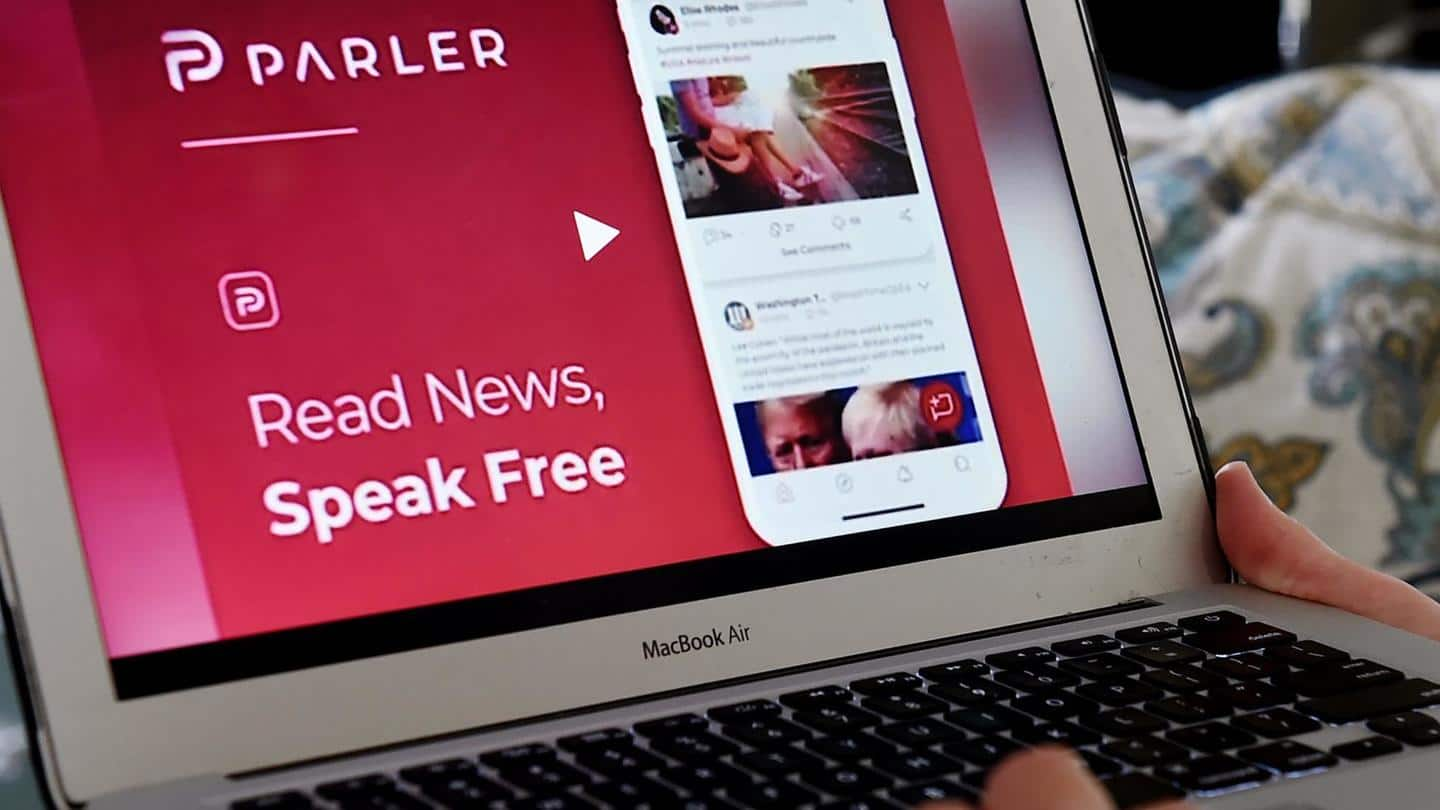Parler warned FBI over 50 times before Capitol Hill protests
What's the story
Free speech platform Parler reportedly informed the FBI of violent content on its platform in the days leading up to the Capitol Hill riots.
Addressing the House Committee on Oversight and Reform (HCOR), Parler's attorneys explained that the platform had approached the FBI more than 50 times.
The revelation comes after Big Tech made Parler the scapegoat for the January 6 events.
Quick refresher
What is Parler and what happened to it?
For the uninitiated, Parler is a free speech-centric Twitter alternative that gained popularity after ex-President Donald Trump was booted off Twitter.
Following the January 6 events, social media firms including Facebook were quick to point fingers at Parler.
Parler was subsequently deplatformed from Apple App Store and Google Play Store citing poor moderation. Amazon Web Services also terminated services critical to keeping Parler online.
Big Tech accusations
Parler isn't like Big Tech portrays it to be
In February, Parler CEO John Matze was fired. Big Tech claimed that Parler facilitated in inciting and coordinating the White House security breach.
Meanwhile, Parler denied these allegations saying that although it is a free-speech platform, it lacked a feature resembling Facebook Groups which made it impossible to coordinate activities.
Additionally, Parler mandates users submit a government-issued ID proof upon sign-up.
Did FBI heed?
FBI warned of potential violence; Parler's contribution to bulletin unclear
In a bulletin the day before the security breach, the FBI reportedly warned Capitol Police of potential extremist violence. However, it remains unclear if the bulletin was based on posts flagged by Parler.
The FBI didn't immediately respond to Forbes' request for comment.
In its recent letter to the HCOR, Parler said that it "continues to work closely with law enforcement".
Details
Parler users weren't pleased to discover the platform's FBI link
The letter said that Parler has since "implemented enhanced procedures with the assistance of artificial intelligence, computerized filtered, and manual reviews to screen and remove incitement from the platform".
Newsweek reports that users weren't pleased to discover that Parler had been sharing information with the FBI.
Parler reportedly defended its actions saying the First Amendment "doesn't protect violence-inciting speech and planning of violent acts."
Lobbying for leniency
Facebook admitted to hosting 'problematic' content prior to protests
In fact, in a hearing before Congress last week, Facebook CEO Mark Zuckerberg admitted that Facebook had indeed hosted "problematic" content from those involved in the January 6 events.
Acting on similar lines, Facebook suggested Section 230 be amended to grant platforms immunity from liabilities arising from users' posts if the said platform actively removes the objectionable content.
Uncertain future
Facebook stopped recommending political groups to users in the US
Once Parler was held accountable by the US government and the issue died down, Facebook cleaned up rogue groups making them harder to discover and banning groups whose members repeatedly flout rules.
Parler continues to exist, although with just a barebones website. It is unclear which way the US Department of Justice and its House Committee on Oversight and Reform will sway.
